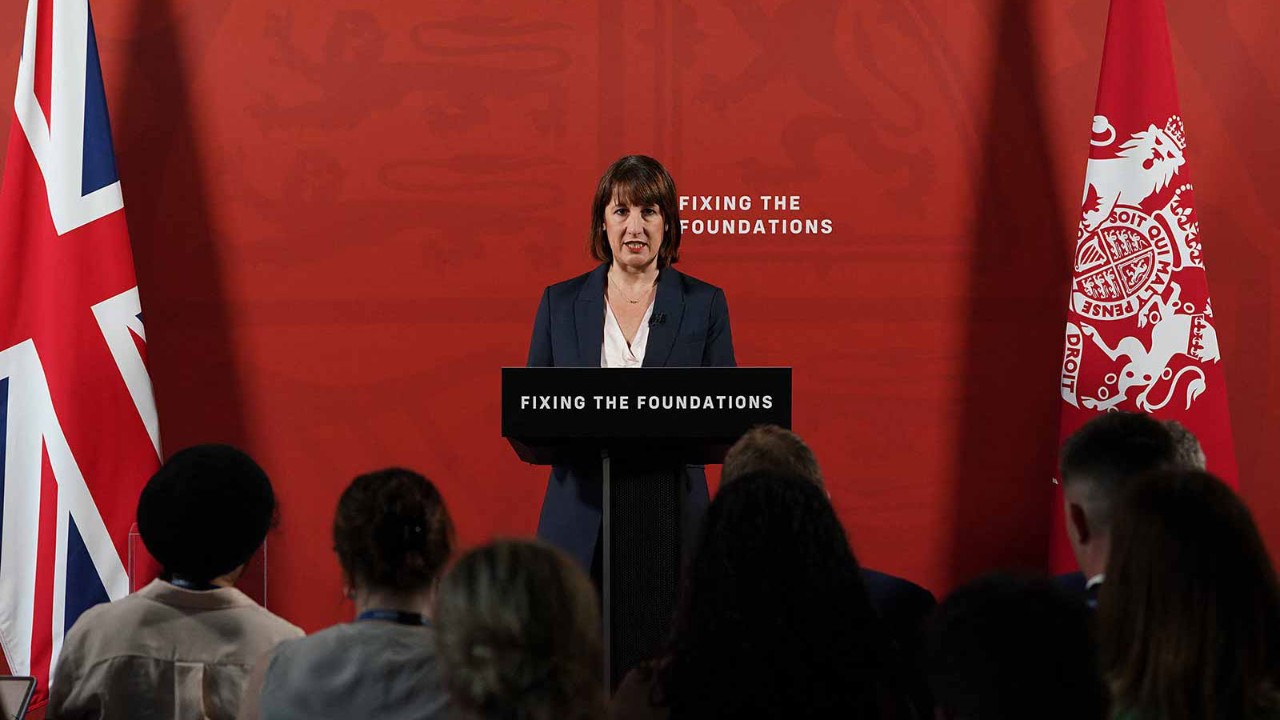
Rachel Reeves, the new Chancellor of the Exchequer, wasted no time in laying out her commitment to drive economic growth. ‘Difficult decisions have been ducked and dived and deferred for the last 14 years,’ she said. I think you can see today that I mean business.’
Accounting professionals have a number of items on their wishlist of important actions.
Skills commitment
The new government has signalled a commitment to skills and training with the launch of Skills England – a new body bringing together central and local government, businesses, training providers and unions to meet the skills needs of the next decade across all regions. Its aim is to provide strategic oversight of the post-16 skills system aligned to the government’s industrial strategy.
‘It actually makes more commercial sense to hire a non-apprentice and pay them more’
Onside Accounting’s founder and CEO Martin Brennan FCCA, whose practice supports start-ups, is a passionate advocate of the apprenticeship scheme and urges the new government to revamp the current process, making it more appealing for new entrants into the profession.
‘We had an apprenticeship scheme here,’ says Brennan, ‘and it was initially very easy to take on apprentices straight out of college or university who we’d train for anywhere between three and five years. The administration of it all was extremely simple. Nowadays, it’s become so complex that it’s just not worth doing. It actually makes more commercial sense to hire a non-apprentice and pay them more.’
He points to the scheme’s burdensome administration. ‘We’ve currently got about 10 apprentices, and they all want to come off the scheme. I find this extremely sad as someone who’s been an advocate for apprenticeships for almost 20 years. I hope the new government will take a close look at this alongside all the other policies.’
‘There should be a big push so that fraud becomes extremely difficult’
Tax concern
Brennan is also keen to see renewed emphasis on R&D tax credits. ‘When the previous government announced cuts to R&D tax credit payments, there was basically an admission that they were failing to tackle the fraud that surrounded it. But genuine businesses are suffering because of this failure,’ he says.
‘There should be a big push by the new government to change the system so that fraud becomes extremely difficult and people get the rebates due to them.’
Tax is a topic on many minds. Simon Roberts, a tax partner at Azets in West Yorkshire, points out that the policies created by the Labour party towards the end of its last period in office (1997-2010), were to address the effects of the 2007-08 financial crisis and the large-scale failures in the banking sector.
‘The Chancellor will be very keen to avoid a disaster like Liz Truss’s mini-budget’
‘The last 14 years have seen a succession of tax policies that have generally sought to reduce non-compliance, eradicate tax avoidance and generally increase the overall tax take, without radical change,’ he says. ‘However, even a casual observer would now fear that radical tax policy is what a new government will require to balance the nation’s books and create the change in society they want to make.
‘The chancellor is seemingly painfully aware of the need to be perceived not to act that way, and has made assurances that national insurance and VAT won’t rise. She’ll be very keen to avoid a disaster like Liz Truss’s mini-budget.’
Roberts says that many tax advisers fear the loss of certain reliefs. The lifetime limit for business asset disposal relief, the reduced rate of capital gains tax of 10% that’s paid when a business owner sells their interest, was reduced to £1m from £10m in 2020 ‘and could be eradicated without too much public backlash’, he notes.
‘I hope the National Wealth Fund will mobilise funding options for SMEs’
He also points to pension reform. ‘Keir Starmer, at the time the previous government removed the lifetime limit for pension savings, said he’d reinstate it. Taxpayers in a position to do so may wish to accelerate the point at which they crystallise their pension benefits before any new charge is introduced.’
Investing in the future
Roberts suggests that the new government might create fiscal and tax policy that could really deliver benefits to the nation, business owners and individuals. ‘For example, the commitment to green spending has been reduced from £28bn to £5bn in recent months, but there’ll be many hoping to benefit from tax reliefs on investment in green technology, new manufacturing opportunities or indeed new employment opportunities.’
It is hoped that the government’s new initiative that brings together the UK Infrastructure Bank and the British Business Bank under a new National Wealth Fund will provide options for SMEs seeking investment.
‘It’s really important that the government finds areas to invest in that support small businesses,’ says Alex Falcon Huerta FCCA, founder of Soaring Falcon Accountancy. ‘However, it’s equally important for private investors to be involved. I hope the National Wealth Fund will mobilise funding options for SMEs and help encourage entrepreneurship and innovative companies. ’
Balancing act
A balance needs to be struck around all these policies, says Falcon Huerta. For example, the costs of introducing a national minimum wage, which puts pressure on small businesses, might in some way be mitigated by reductions in taxes, the VAT threshold and increased R&D opportunities.
‘Business owners are doing all they can to run their businesses while taking care of employees – which is essentially like looking after their own families – always considering the minimum wage,’ says Falcon Huerta. ‘On top of that, they’re paying high taxes. A balance is needed – I don’t feel there is one yet.’
‘If the new government doesn’t learn from the mistakes of the past and continues to penalise small businesses, there’ll come a time when people will want to simply get up and leave the UK, and this would be disastrous for our economy.’



